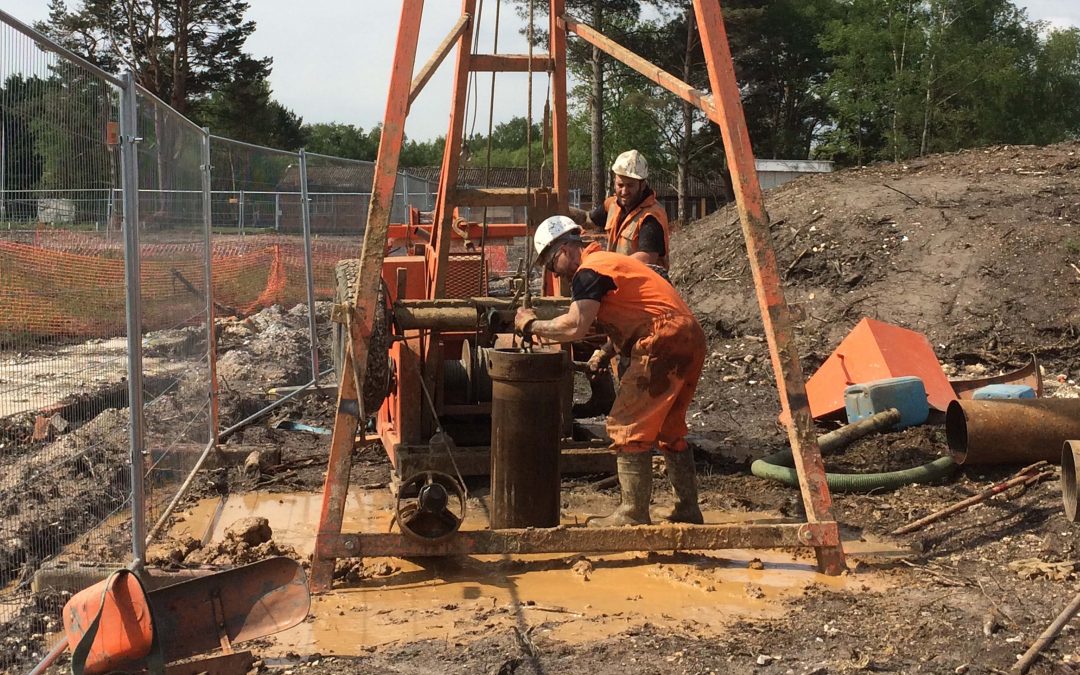Cable percussion rigs – could abuse mean lose?
Geotechnical • News • Regulation
Possible concerns expressed by the Health and Safety Executive (HSE) about Dando cable percussion rigs have fuelled a rumour that all CP rigs could be banned.
A more general industry debate about the equipment highlighted a lack of rig drivers, who possess the necessary operating experience. HSE concerns over this were addressed once specialist training courses were established.
Given the nature of the equipment, especially smaller cut down examples, such as those used in basement investigations, a significant amount of manual handling can be required to set up and dismantle the equipment. There have also been concerns about shortcuts being taken over working at height, regarding setting up the tripod or replacing the cable.
Other concerns have surrounded the strength and stability of the frame. More powerful engines and heavier augers have the potential to overload the structure and the wire rope.
Whether the rumour around Dando Drilling International’s rigs was based on a reported accident, is not known. The British Drilling Association (BDA) published a press release addressing the rumours on its website. It said: “Due to rumours and speculation recently regarding the manufacture of CP rigs by Dando Drilling International Ltd, the BDA has contacted them to ask for an official statement on the situation.”
In November 2017 Dando issued at statement saying that it is ceasing production of its current D2500 and D4000 cable percussion drilling rigs and will replace them with a new rig called the “Duke” which will be launched in early 2018. It added the “Duke” will incorporate several improvements including the ability to meet the new 2019 emissions standards.
The HSE responded to a freedom of information request on the subject in October 2017, from drilling professional Anthony Carpenter – this was published on his Linkedin blog – confirming it does not have a policy or programme to phase out use of CP rigs.
Any HSE investigation relating to flaws in industrial equipment design can have wider reaching implications. This is seen most often in the airline industry when a mechanical failure on an aircraft results in a whole fleet being grounded while the flawed component is re-engineered and replaced. It doesn’t result in a blanket ban on all air travel.
Cable percussion rigs are, and have been for many years, central to most geotechnical investigation work. Like any machine: if abused, poorly serviced or incorrectly operated, there is the potential for accidents to happen.
Ground & Water regularly uses cable percussion drilling as part of its geotechnical site investigations. We use trusted drilling contractors and require them to ensure their equipment is well maintained and driven by properly trained and experience operators.
